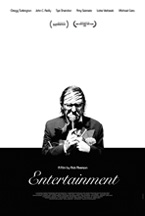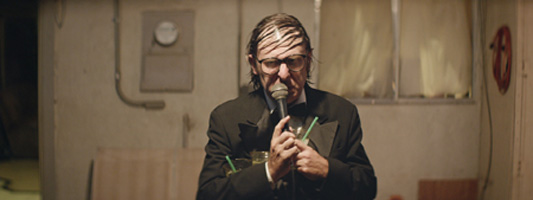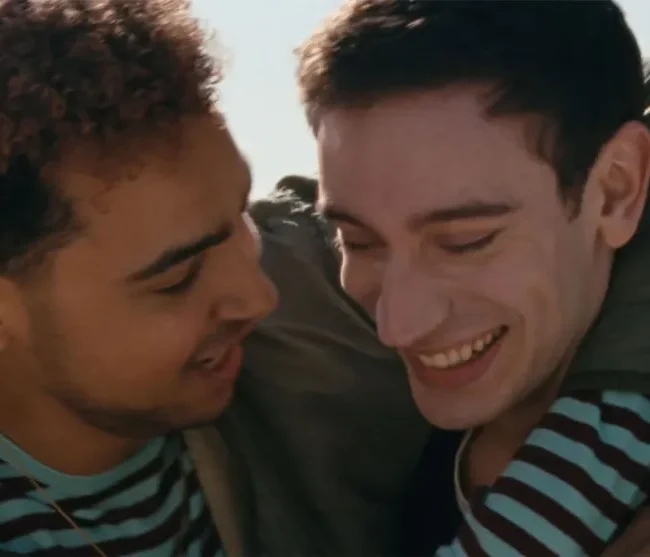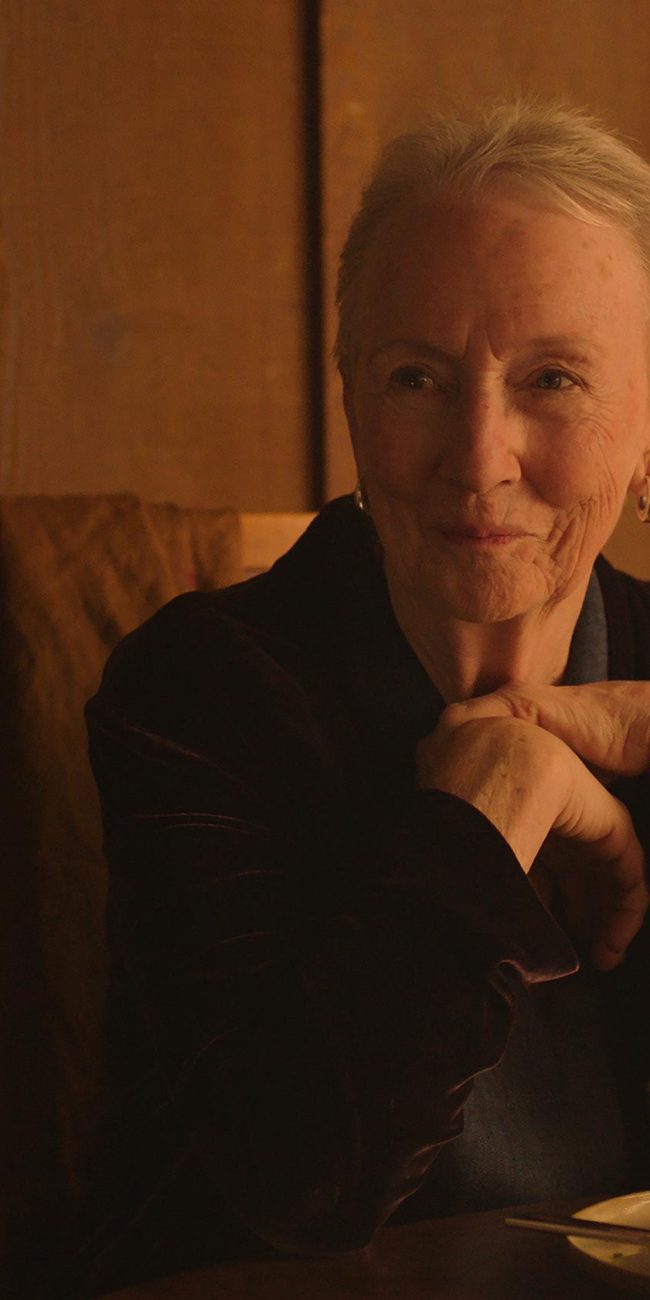
(Entertainment world premiered in the NEXT Section at the 2015 Sundance Film Festival. It’s also showing as part of the New Directors/New Films series in New York at the Film Society Lincoln Center.)
Before watching Rick Alverson’s Entertainment, if you had asked me to pinpoint America’s colon on a map, my finger would have headed straight for the Port Authority Bus Terminal in New York City. Now I’m not so sure. In his quest to find a location that would provide the bleakest backdrop for one man’s hallucinatory tailspin into an existential abyss, Alverson settled on Bakersfield, California. Note to self (and by self I mean each and every one of us): do not ever go to Bakersfield.
If you’ve seen Alverson’s previous feature, The Comedy (aka, the winner of HTN’s Best Film of 2012), or if you are familiar with the work of Neil Hamburger (aka, Gregg Turkington’s confrontational, over-the-hill-and-under-the-influence lounge standup character), then you are one of the privileged souls, for you’ll at least have a bit of a handle on what you’re getting into with Entertainment. For the rest of you… frankly, I really don’t know what to say to the rest of you.
Turkington stars here as The Comedian, a standup in the midst of a small venue tour in the California desert. His opening act Eddie (Tye Sheridan) is a good-natured young clown (literally) whose sole agenda appears to be eliciting a viscerally enthusiastic reaction from his audience without ever actually doing anything of note or distinction. When not performing, The Comedian is a withdrawn everyman who bides his time taking tours of desert landmarks and leaving voicemails for his daughter (his tour is concluding in LA at a famous person’s house party and he wishes she would be there). On stage, however, he’s something else entirely, a distorted version of a sloppy lounge comedian: tuxedo, three drinks in hand, greasy comb-over, and an assault of material that mixes non-jokes with one-liners that are as politically incorrect as the human language can get (for example: “What’s the worst thing about being gang raped by Crosby, Stills and Nash? (silence) Noooo Younggg.”). Needless to say, he’s an acquired taste. Of course, pretty much every single night at least one person in the sparse crowd takes the bait and lashes out at him, causing him to spew even more vitriol at this very person who paid money to see him (“syphilis breath” is one of his kinder-and-gentler turns of phrase).
 As The Comedian makes his way through the barren wasteland in and around Bakersfield, he reunites with his cousin John (John C. Reilly) before encountering a steady array of off-kilter strangers (Michael Cera, Amy Seimetz, David Yow—all brief, all great). At the film’s midway point, he has an exchange with a loopy chromotherapist (Lotte Verbeek) that may be the cause of the ensuing hallucinatory chaos that follows. Or maybe he’s simply been on the road for too long and just needs to get the hell away from this scorching geographical colon?
As The Comedian makes his way through the barren wasteland in and around Bakersfield, he reunites with his cousin John (John C. Reilly) before encountering a steady array of off-kilter strangers (Michael Cera, Amy Seimetz, David Yow—all brief, all great). At the film’s midway point, he has an exchange with a loopy chromotherapist (Lotte Verbeek) that may be the cause of the ensuing hallucinatory chaos that follows. Or maybe he’s simply been on the road for too long and just needs to get the hell away from this scorching geographical colon?
Working with cinematographer Lorenzo Hagerman (Heli), Alverson primarily composes his film in static widescreen tableaus that only exacerbate The Comedian’s rising condition of environmental entrapment (this is perhaps most beautifully expressed in the exterior shots of him wandering aimlessly through the wide open desert). Post-chromotherapist, gels are employed to further reflect his increasingly melting reality. Yet from the beginning, a menacing soundscape simmers around Alverson’s creatively selected source music, letting us know that just in case you were holding out hope, it’s highly unlikely that this story will end well.
Nowadays, there’s lots of talk about how easy it is to make a movie for little to no money. And that’s true… to a point. And that’s great… in theory. But to make a motion picture with the type of names that will enable that movie to actually get seen, and to assemble a group of collaborators that can bring one’s vision to fully blossomed life? That takes real money (by ‘real money’ I’m talking mid-six figures at the very least). Which is to say that for a movie like Entertainment to exist in 2015 is far more difficult an achievement than it seems. This is not just a refreshing or exciting thing to appreciate. It’s inspiring. Love it or hate it—and you will most certainly do one or the other in a big, big way—it’s impossible to deny that Entertainment is the expression of a daring artist who is hellbent on rejecting conventions and norms and firmly believes that the true purpose of cinema is to challenge, not satiate, viewers.
— Michael Tully











